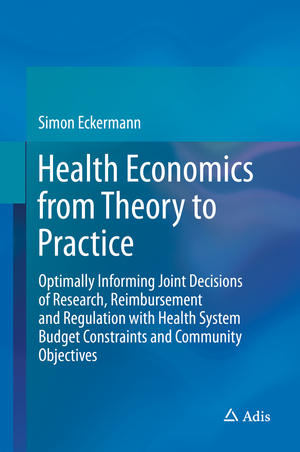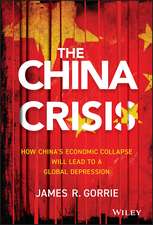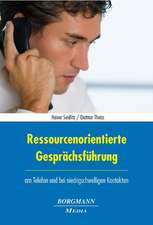Health Economics from Theory to Practice: Optimally Informing Joint Decisions of Research, Reimbursement and Regulation with Health System Budget Constraints and Community Objectives
Autor Simon Eckermannen Limba Engleză Hardback – 27 mar 2017
| Toate formatele și edițiile | Preț | Express |
|---|---|---|
| Paperback (1) | 364.29 lei 38-44 zile | |
| Springer International Publishing – 21 iul 2018 | 364.29 lei 38-44 zile | |
| Hardback (1) | 403.91 lei 22-36 zile | |
| Springer International Publishing – 27 mar 2017 | 403.91 lei 22-36 zile |
Preț: 403.91 lei
Nou
Puncte Express: 606
Preț estimativ în valută:
77.29€ • 80.91$ • 63.95£
77.29€ • 80.91$ • 63.95£
Carte disponibilă
Livrare economică 17-31 martie
Preluare comenzi: 021 569.72.76
Specificații
ISBN-13: 9783319506111
ISBN-10: 3319506110
Pagini: 322
Ilustrații: XXII, 328 p. 71 illus., 38 illus. in color.
Dimensiuni: 155 x 235 x 26 mm
Greutate: 0.79 kg
Ediția:1st ed. 2017
Editura: Springer International Publishing
Colecția Adis
Locul publicării:Cham, Switzerland
ISBN-10: 3319506110
Pagini: 322
Ilustrații: XXII, 328 p. 71 illus., 38 illus. in color.
Dimensiuni: 155 x 235 x 26 mm
Greutate: 0.79 kg
Ediția:1st ed. 2017
Editura: Springer International Publishing
Colecția Adis
Locul publicării:Cham, Switzerland
Cuprins
1. Introduction.- Part I. Health Economic Principles and Practice for Robustly Evaluating Health System Investment with Trial, Model and Multiplier Methods Across Individual and Community Level Analyses.- 2. Principles and Practice for Trial Based Health Economic Analysis.- 3. Avoiding Frankenstein’s Monster and Partial Analysis Problems: Robustly Synthesizing, Translating and Extrapolating Evidence.- 4. Beyond the Individual – Evaluating Community Based Health Promotion and Prevention Strategies and Palliative Care Domains of Effect.- Part II. Joint Research and Reimbursement Questions, Optimising Local and Global Trial Design and Decision Making Under Uncertainty within and Across Jurisdictions with Value of Information Methods.- 5. The Value of Value of Information Methods to Decision Making: What VOI Measures Enable Optimising Joint Research and Reimbursement Decisions within a Jurisdiction?.- 6. Globally Optimal Societal Decision Maker Trials.- 7. Value of INFORMATION, Pricing under Uncertainty and Risk Sharing with Optimal Global Trial Design.- Part III. Regulating Strategies and Providers in Practice: the Net Benefit Correspondence Theorem Enabling Robust Comparison of Multiple Strategies, Outcomes and Provider Efficiency in Practice Consistent with Net Benefit Maximisation.- 8. Best Informing Multiple Strategy Cost Effectiveness Analysis and Societal Decision Making - the Cost Disutility Plane and Expected Net Loss Curves and Frontiers.- 9. Including Quality of Care in Efficiency Measures: Creating Incentives Consistent with Maximising Net Benefit in Practice.- 10. Multiple Outcome Cost-Effectiveness Analysis in Cost-Disutility Space.- Part IV. The Health Shadow Price and Other Key Political Economy and Policy Issues - Appropriate Threshold Pricing and Policy Application of Methods for Optimizing Community Net Benefit with Budget Constraints.- 11. The Health Shadow Price and Economically Meaningful Threshold Values.- 12. Policy Implications and ApplicationsAcross Health Care Reform with Baby Boomer Ageing for Primary Care, Acute Care, Aged Care and Palliative care in Australia.- 13. Conclusion.
Notă biografică
Simon Eckermann is Senior Professor of Health Economics at the Australian Health Services Research Institute and University of Wollongong. His research interests include robust methods for cost effectiveness evidence synthesis and translation, multiple strategy and efficiency comparisons allowing for quality of care consistent with maximising net benefit, multiplier methods in health promotion settings, multiple domain comparisons in palliative care settings and value of information methods for optimally informing joint research, reimbursement, implementation and pricing decisions.
In the last 15 years Prof. Eckermann has published more than 60 related health economics papers in high impact international health economics, policy and medical journals and taught associated principles and methods to more than 500 students from a wide range of clinical, research, policy and health technology assessment backgrounds, primarily in the Health Economics from Theory to Practice course developed with Professor Andrew Willan. He also actively sits on and undertakes guideline revision and health economics educational activities for bodies including the PBAC Economic Sub-Committee, Palliative Care Trials Scientific Committee, Prostheses List Advisory Committee, Victorian Cancer Agency and Food Standards ANZ and is a CI on competitive research grants totalling more than a $25 million over the past decade.
In the last 15 years Prof. Eckermann has published more than 60 related health economics papers in high impact international health economics, policy and medical journals and taught associated principles and methods to more than 500 students from a wide range of clinical, research, policy and health technology assessment backgrounds, primarily in the Health Economics from Theory to Practice course developed with Professor Andrew Willan. He also actively sits on and undertakes guideline revision and health economics educational activities for bodies including the PBAC Economic Sub-Committee, Palliative Care Trials Scientific Committee, Prostheses List Advisory Committee, Victorian Cancer Agency and Food Standards ANZ and is a CI on competitive research grants totalling more than a $25 million over the past decade.
Textul de pe ultima copertă
This book provides a robust set of health economic principles and methods to inform societal decisions in relation to research, reimbursement and regulation (pricing and monitoring of performance in practice). We provide a theoretical and practical framework that navigates to avoid common biases and suboptimal outcomes observed in recent and current practice of health economic analysis, as opposed to claiming to be comprehensive in covering all methods. Our aim is to facilitate efficient health system decision making processes in research, reimbursement and regulation, which promote constrained optimisation of community outcomes from a societal perspective given resource constraints, available technology and processes of technology assessment. Importantly, this includes identifying an efficient process to maximize the potential that arises from research and pricing in relation to existing technology under uncertainty, given current evidence and associated opportunity costs of investment. Principles and methods are identified and illustrated across health promotion, prevention and palliative care settings as well as treatment settings. Health policy implications are also highlighted.
Caracteristici
Identifies evaluation principles and methods that enable constrained optimisation of joint research, reimbursement and reimbursement decisions Principles and methods are illustrated across health promotion, prevention, palliative and aged care settings addressing challenges of baby boomer ageing Health shadow price and value of information methods are shown to point towards research required for better integration and pricing of existing and new technologies Demonstrates distinct advantages of the net benefit correspondence theorem in comparing multiple strategies, multiple outcomes and efficiency in practice










